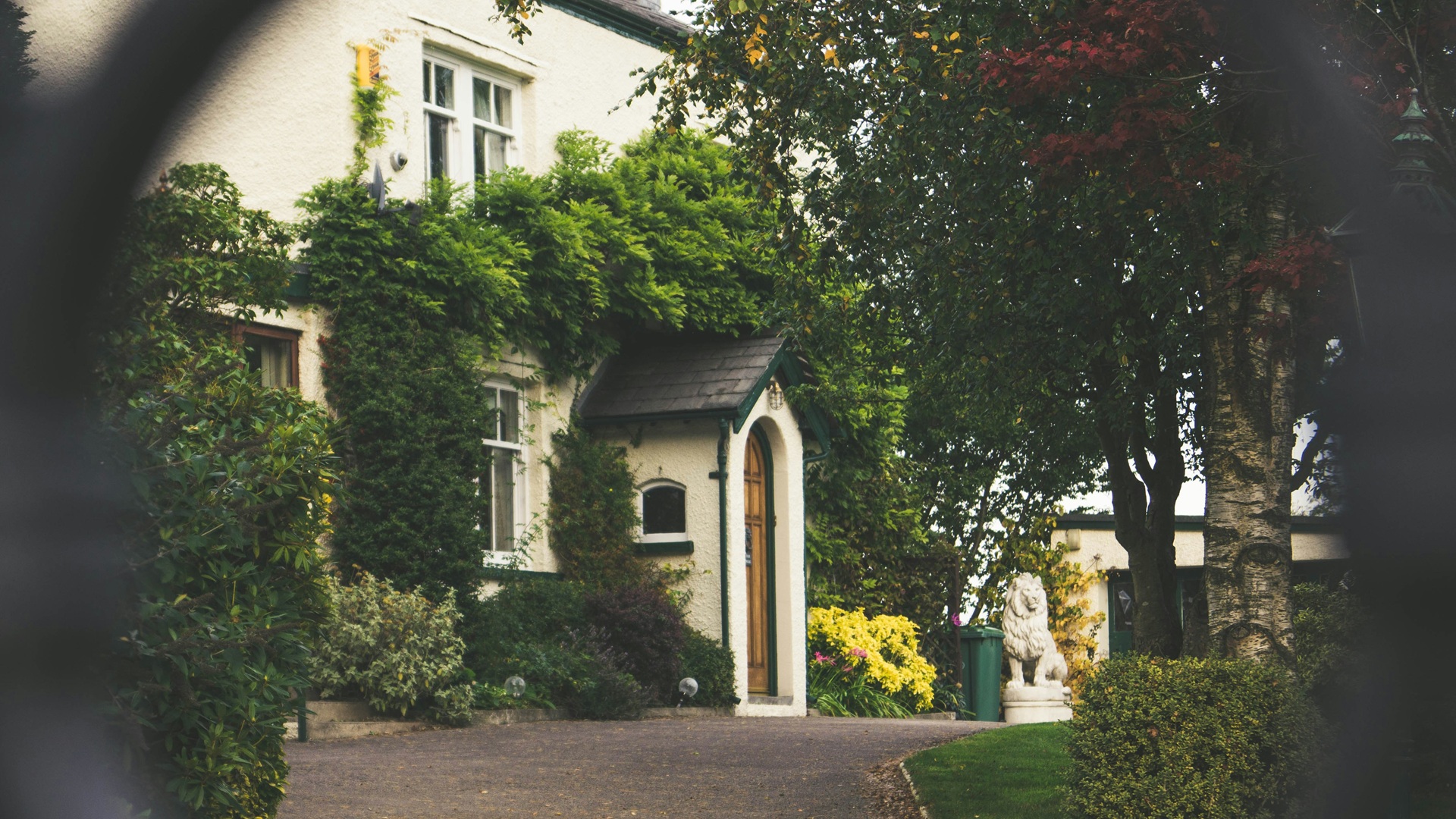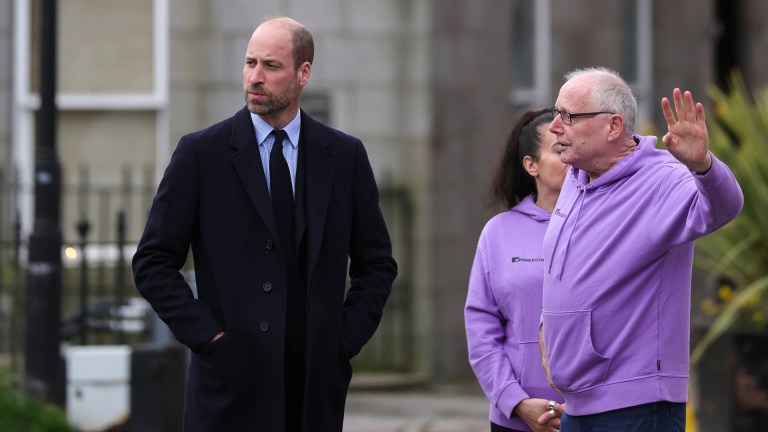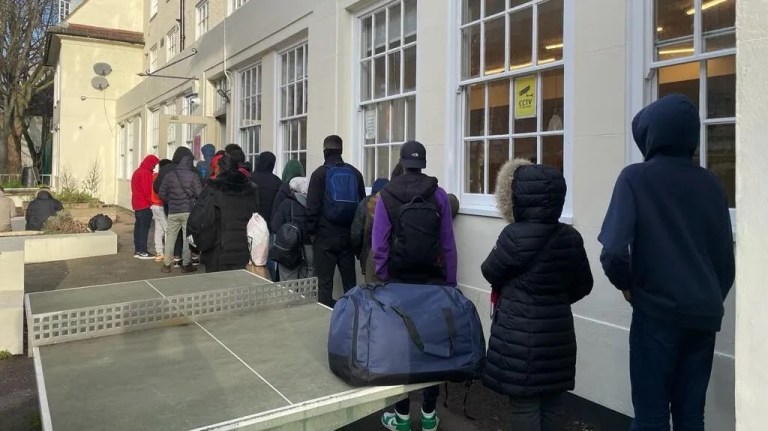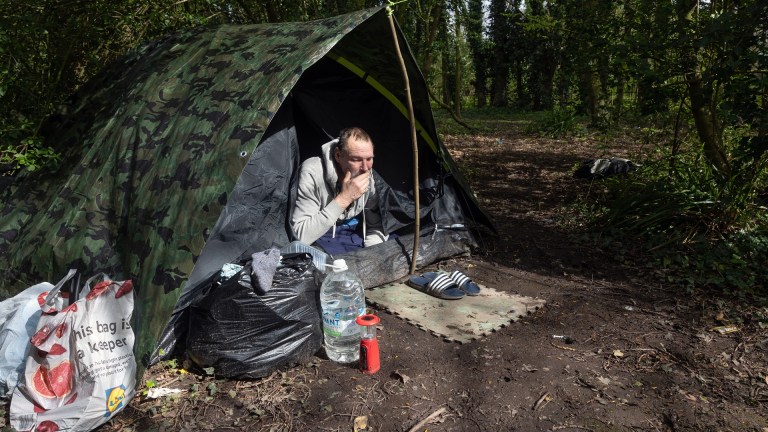Camron Aref-Adib, economist at the Resolution Foundation, said: “Ethnic minorities are spending a higher share of their income on keeping a roof over their heads.
“This affordability gap can’t be fully explained by where people live and whether they own or rent. Ethnic minority families are at the sharp end of Britain’s housing crisis and would benefit most from actions to tackle it, such as building more homes and strengthening rights for private renters.
“But the possibility of structural discrimination in our housing market is a serious concern, and one that warrants an official inquiry.”
Responding to the report, housing campaigner Kwajo Tweneboa told the Big Issue: “I’m absolutely not shocked or surprised with this data because it reflects exactly what I see when I visit homes at a grassroots level.
“This discussion around housing and race has to be had. Many roll their eyes when it’s suggested but the facts are laid bare in this report.”
The research found that at least half of the housing affordability gap between ethnic minorities and white British adults comes down to differences in age, housing tenure and the region where people live with low home ownership the biggest cause.
Advertising helps fund Big Issue’s mission to end poverty
But a significant portion of the affordability gap facing ethnic minority adults remains unexplained, researchers said, suggesting that discrimination and stronger neighbourhood preferences could play a part.
The research also found that ethnic minority adults are more likely to live in homes that fail to meet basic quality standards.
Black African and Bangladeshi-headed households are three times more likely to live in damp conditions as White British households, accounting for 9% and 10% of households compared to 3%.
Researchers also considered whether the UK housing affordability gap could be explained by ethnic minority families needing larger homes for larger households.
But instead they found families are more likely to live in overcrowded homes. Over one-in-six Pakistani, Black African, and Black other adults live in overcrowded homes, making them more than nine times more likely to live in overcrowded homes than White British counterparts.
Another factor researchers considered was whether some ethnic minority groups, such as Arab and South Asians, paid a premium due to a stronger-than-average attachment to place and community.
Advertising helps fund Big Issue’s mission to end poverty
But the Resolution Foundation report concluded that discrimination must also be considered. The think tank found 9% of Arab people and 7% of Black Caribbean people reported experiencing ethnic discrimination in accessing housing within the last five years.
Dr Shabna Begum, CEO of the Runnymede Trust, said the Grenfell disaster and the deaths of Rochdale toddler Awaab Ishak due to damp and mould show the need for change.
Dr Begum also highlighted the case of Mizanur Rahman, who died while living in an overcrowded flat in Shadwell, London, due to a fire started by an e-bike battery.
“The double penalty of higher costs and lower standards of housing for some minority ethnic communities has long been evidenced, and needs urgent attention. Grenfell, the pandemic, and more recently the deaths of Awaab Ishak and Mizanur Rahman, all demonstrate that poor quality and unaffordable housing has immediate, devastating and, crucially, preventable consequences,” said Dr Begum.
“Housing is an easy way to illustrate how structural racism and poverty intersect, and how urgent the situation is becoming. People are trapped into ways of living which aren’t safe or financially sustainable. We should all be able to make active choices about our housing, and to make those choices with attention to child and elder care needs, rising worries about loneliness and simply what is affordable. We need to address the endemic harms that operate on many many minority ethnic communities and at the same time, push for more supportive and creative ways that allow people to live safely, decently, and with enough room to nurture both themselves and their loved ones.”
The Big Issue recently covered research from Crisis which looked at racial inequality driving the homelessness crisis.
Advertising helps fund Big Issue’s mission to end poverty
The charity found Black people were overrepresented among homelessness statistics, making up 20% of households seeking temporary accommodation and a quarter of people sleeping rough in London.
That’s despite Black people making up just 4% of England’s population.
Do you have a story to tell or opinions to share about this? Get in touch and tell us more. Big Issue exists to give homeless and marginalised people the opportunity to earn an income. To support our work buy a copy of the magazine or get the app from the App Store or Google Play.










